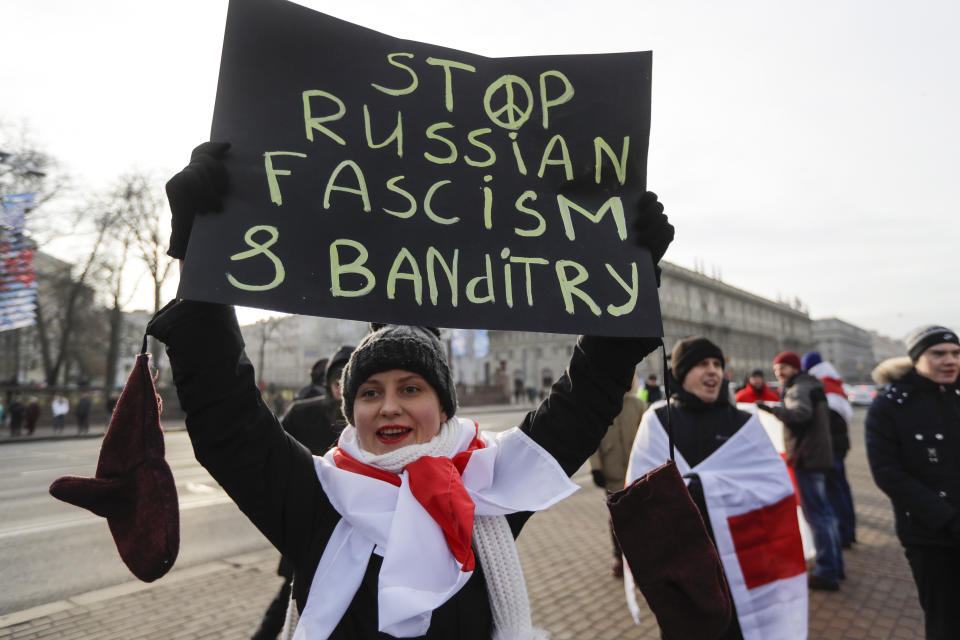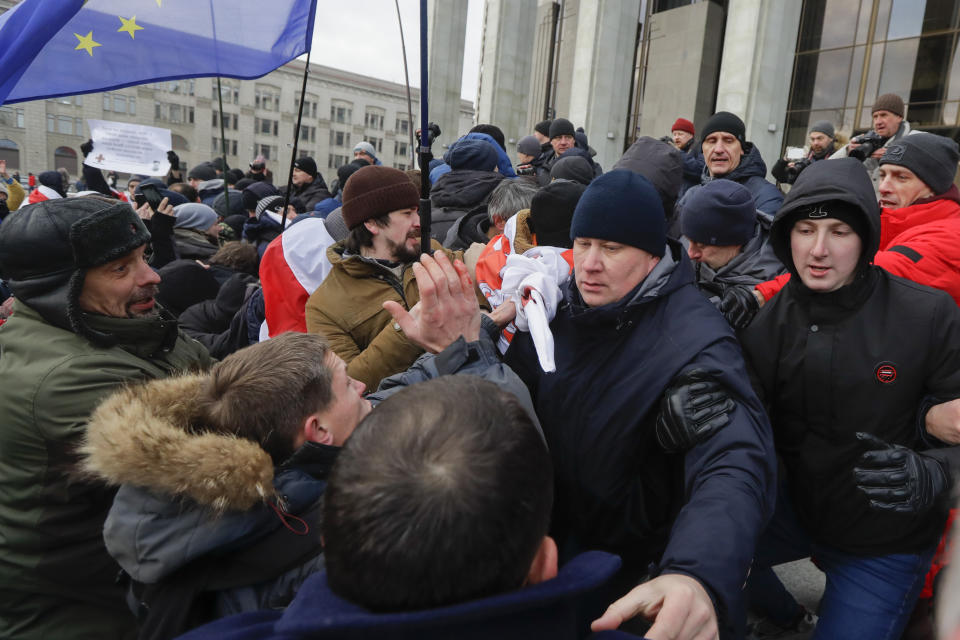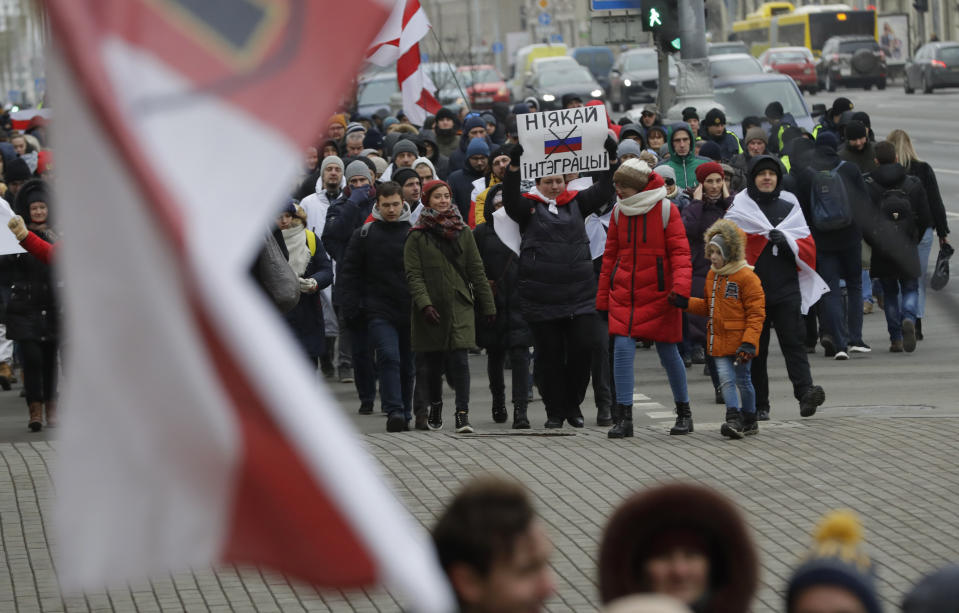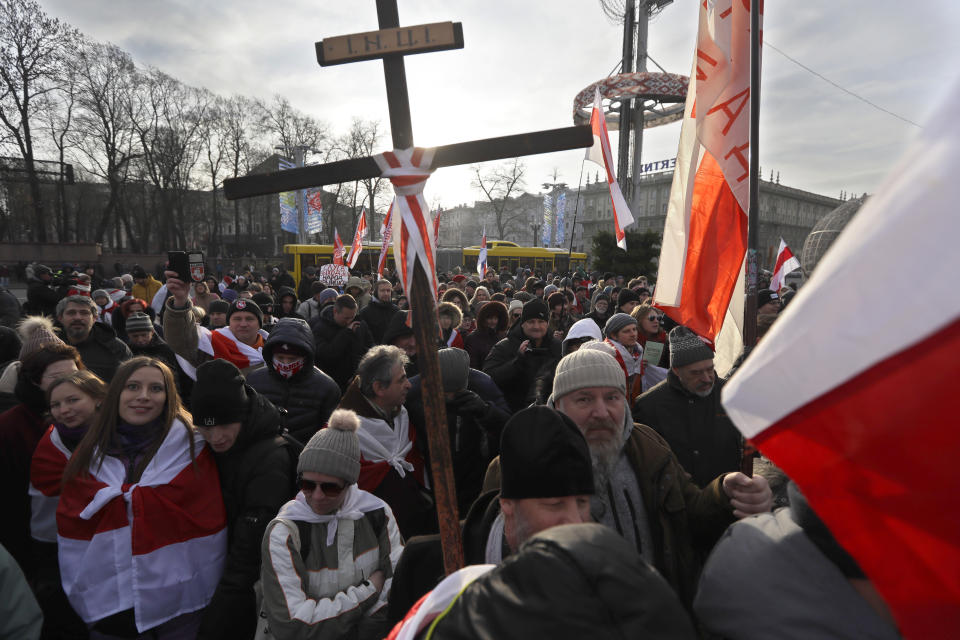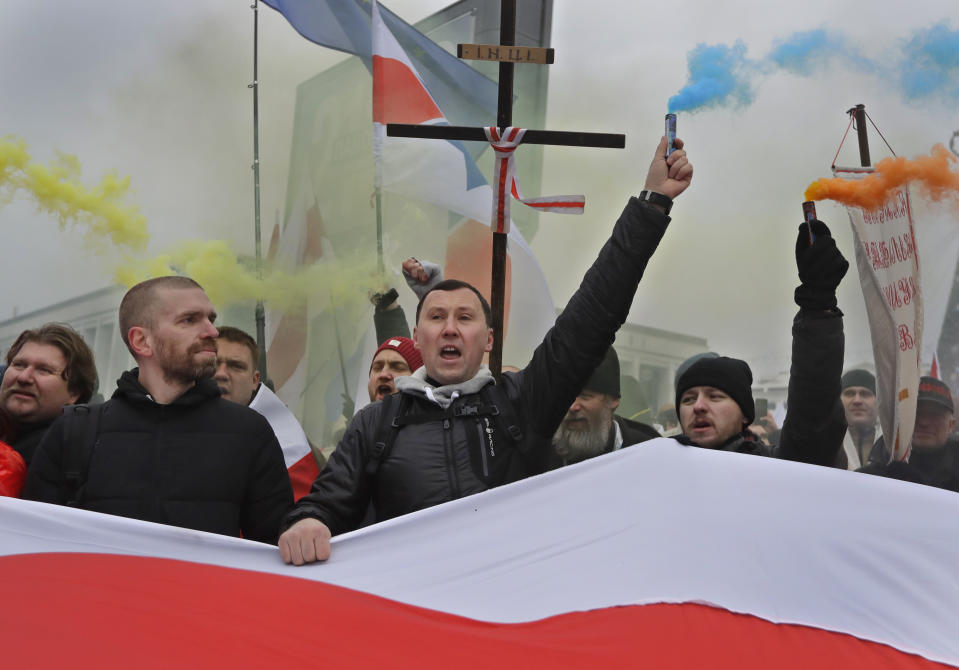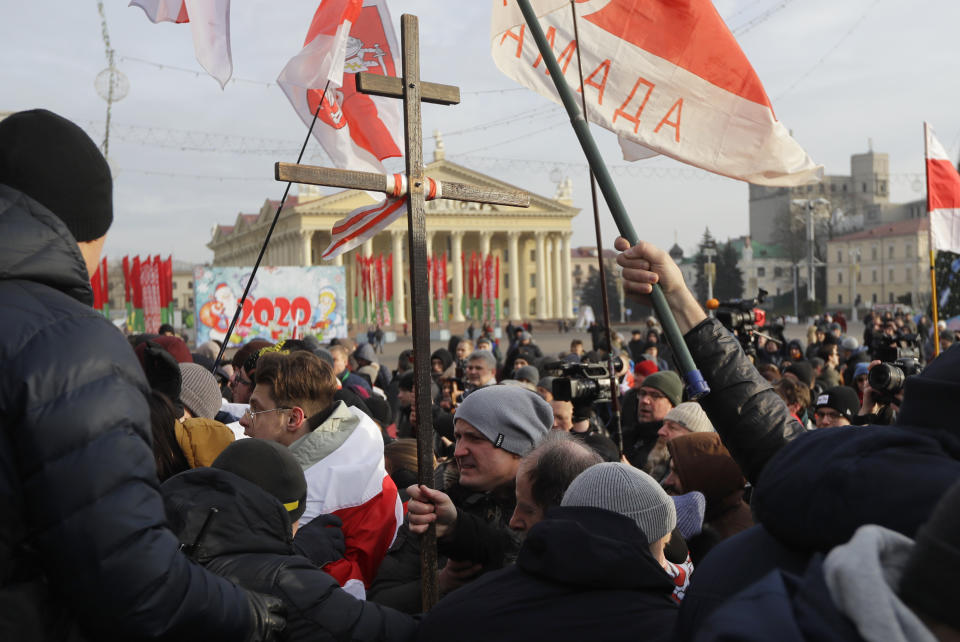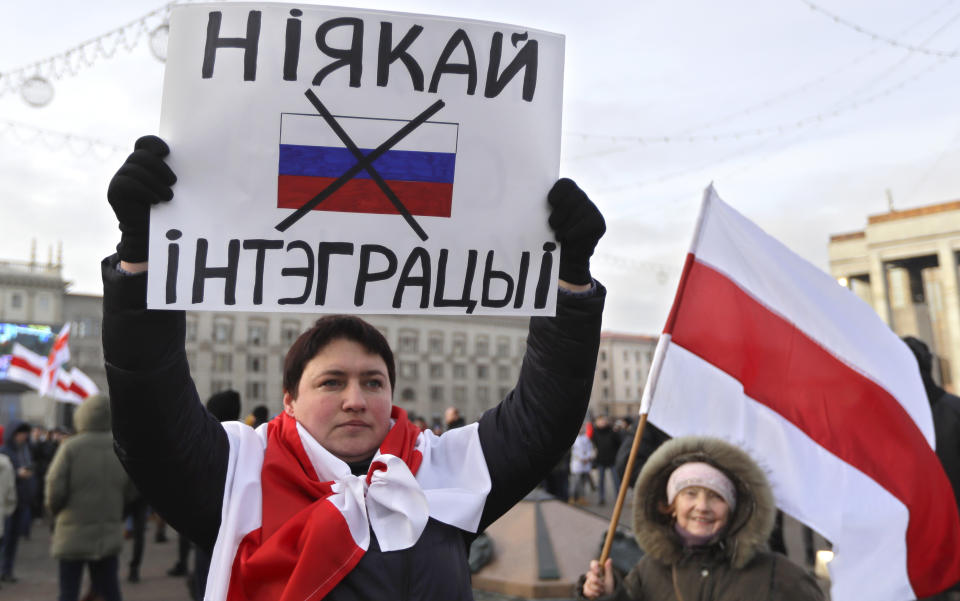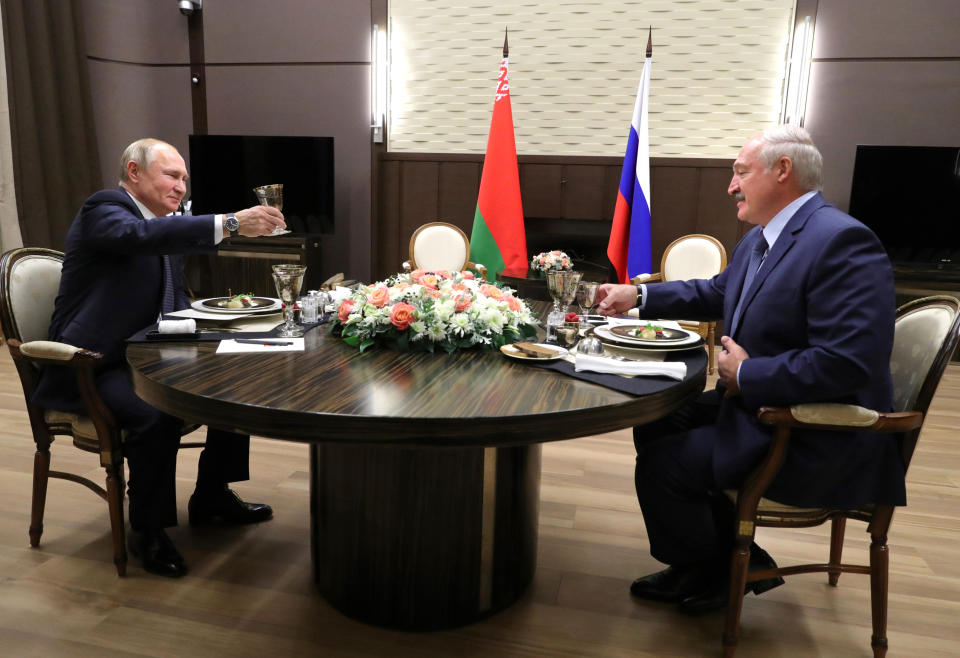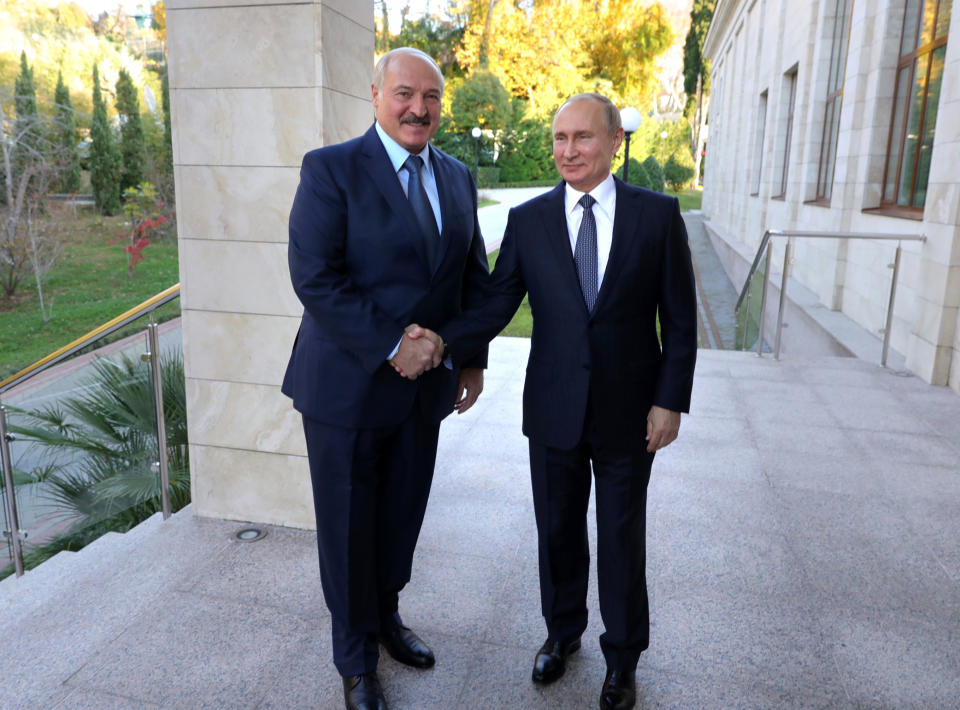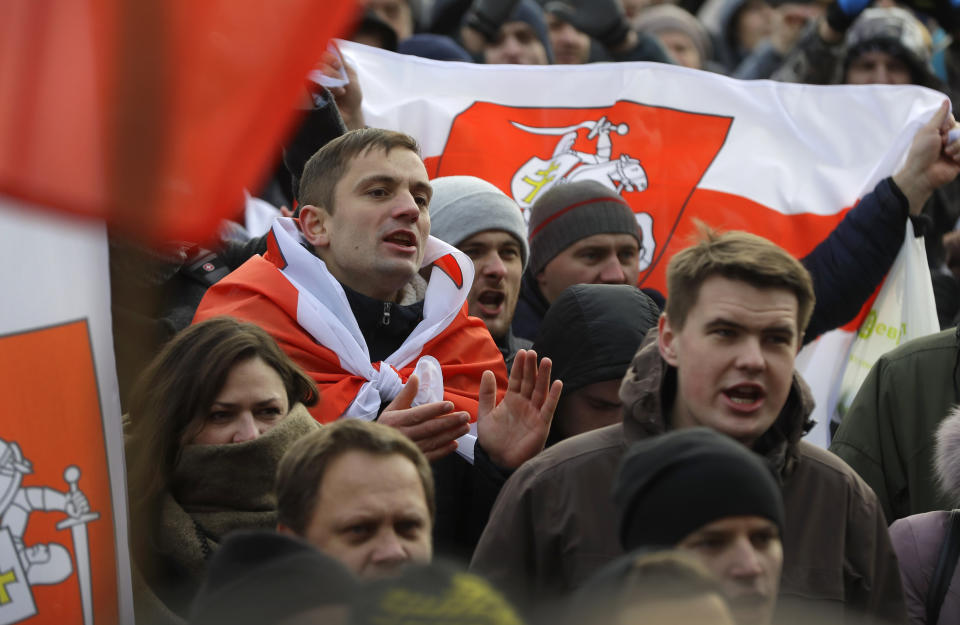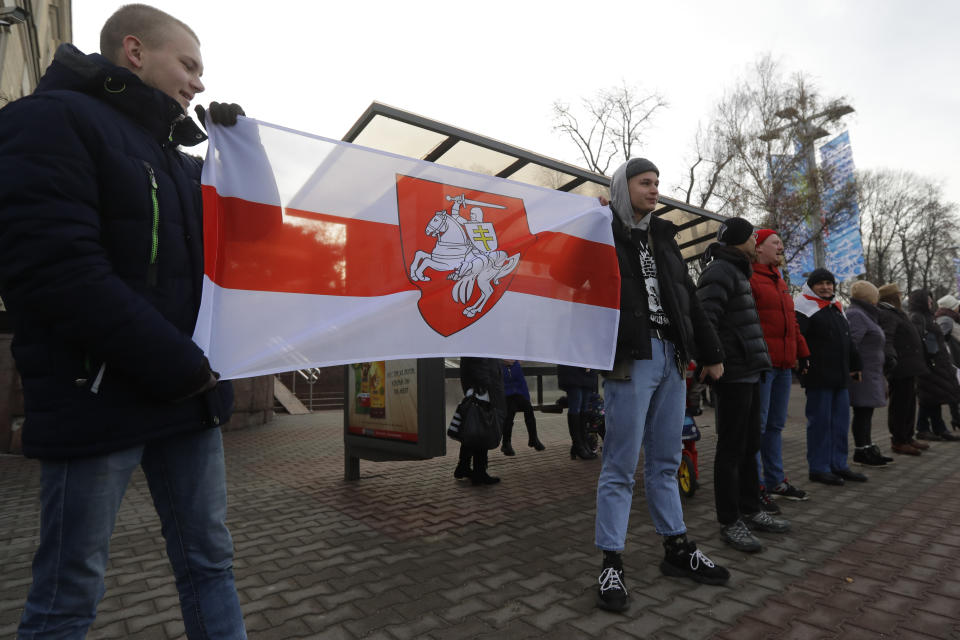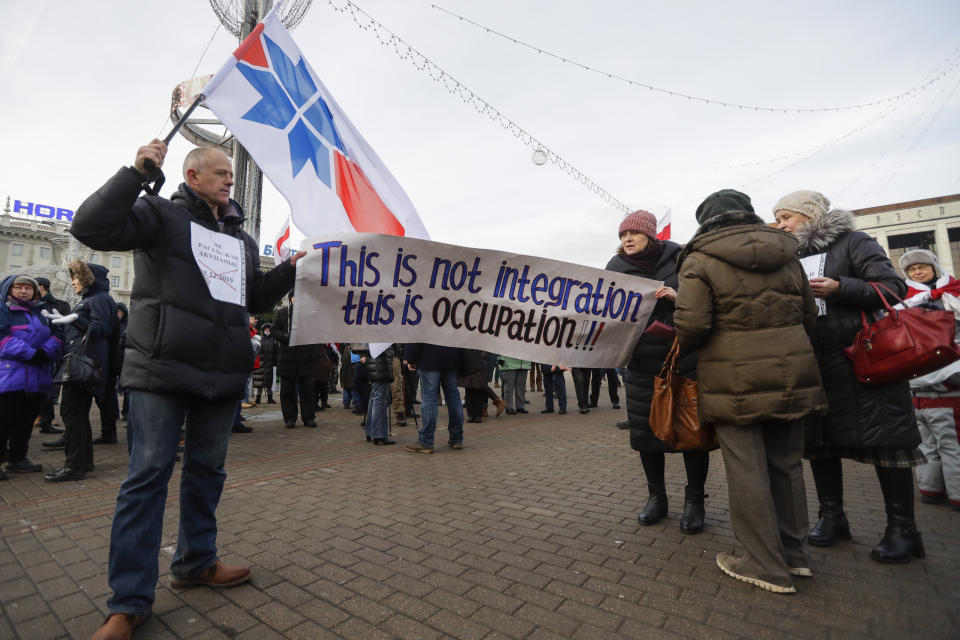MINSK, Belarus (AP) — The leaders of Russia and Belarus spent more than five hours Saturday in sensitive talks on deepening ties between the two allies — a meeting that triggered a protest in the Belarusian capital among those who fear Russia's intentions.
No immediate deal was announced after the talks in Sochi on Russia's Black Sea coast between Russian President Vladimir Putin and Belarusian President Alexander Lukashenko, but a senior Russian official said they edged closer to an agreement.
More than 1,000 opposition demonstrators rallied in Minsk to protest closer integration with Russia, which they fear could erode the post-Soviet independence of Belarus, a nation of 10 million. The protesters marched across the Belarusian capital, chanting “No to integration!” and “Belarus to Europe!”
Lukashenko, who has ruled Belarus with an iron fist for more than a quarter-century, relies on cheap Russian energy and loans to maintain his country's Soviet-style economy.
Russia and Belarus signed a union agreement in 1997 that envisaged close political, economic and military ties, but stopped short of forming a single nation.
The Kremlin has recently cranked up the pressure on Belarus, raising energy prices and cutting subsidies. Russian officials say Minsk should accept closer economic integration if it wants to benefit from lower energy prices.
Speaking at the start of talks in Sochi, Lukashenko urged Putin to continue sending fuel shipments to Belarus at Russia's domestic prices.
“We just want equal conditions — nothing else,” Lukashenko said with a wry smile as he faced Putin across the table.
“We shall talk about future prospects. It's a landmark meeting,” Putin said. “I hope we will keep doing all we can to make our peoples and nations feel close and keep moving primarily in the economic sphere, but also in the social field, to benefit from that integration."
Russian Economics Minister Maxim Oreshkin said the two sides narrowed their positions on oil, gas and other disputed issues and the leaders instructed officials to continue to iron out the remaining differences. Putin and Lukashenko are to meet again on Dec. 20 in St. Petersburg.
Some in Belarus fear the new agreements could pave the way for a full merger of the two countries, concerns fueled by Russia’s 2014 annexation of Ukraine’s Crimean Peninsula.
There also has been speculation that Putin, who has been in power for nearly two decades, could contemplate a merger with Belarus as a way to stay at the helm of the new union state of Russia and Belarus after his current Russian presidential term expires in 2024.

